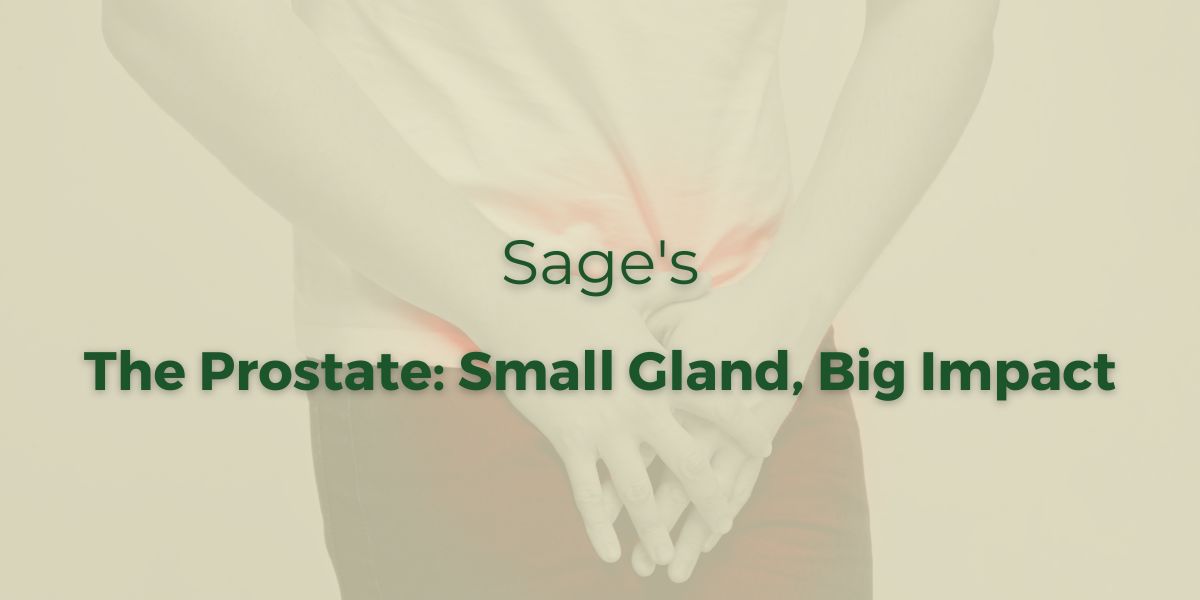
by Dr. Emile Sabga, ND
With Men’s Health Month underway, it’s important that we address a topic that many men wince at the thought of – prostate health. It’s an inevitable consideration that lives in the back of the minds of many aging men, and for most, that thought remains pushed to the back for as long as possible. The truth is, this is an issue that should be at the forefront of the conversation between men and their healthcare providers.
Here in Canada, prostate cancer is the third leading cause of death in the male population. According to data published by Statistics Canada, it is estimated that about 1 in 8 Canadian men will develop prostate cancer during their lifetime and 1 in 29 will die from it. Even with today’s modern medical interventions, and comparatively lower incidence rates than previous years’ metrics, these numbers are still astonishingly high and should not be ignored.
Of course, cancer is not the only concern when it comes to prostate health. Other conditions such as benign prostatic hyperplasia and prostatitis may also arise, and treatment considerations will vary based on the diagnosis.
In the context of naturopathic medicine, the messaging regarding prostate health (and men’s health in general) is consistent when compared to all other areas of health – prevention is the best intervention.
1. Know the signs
Oftentimes, enlargements in the prostate will result in similar symptoms, regardless of the cause. At the earliest stages of enlargement, men may experience difficulty urinating, a decrease in the force of the urine stream, increased urinary frequency and urgency. While these are the most common symptoms associated with natural age-related enlargement, as seen in benign prostatic hyperplasia, other symptoms such as pain and blood in the urine may suggest a more serious diagnosis. Regardless of the severity of the symptoms, ignoring them won’t make them go away. It’s always best to seek the assistance of a healthcare professional like your naturopathic doctor to determine what steps you can take to support your prostate health.
2. Get tested regularly
General medical guidelines indicate that men with a low to average risk of developing prostate cancer can begin the screening process at the age of 50. Those with higher risk based on family history or ethnic predisposition (often black men of African or Caribbean descent) should consider testing from the age of 45. Testing goes beyond the traditional digital rectal physical exam. While this is useful in identifying abnormalities in shape and symmetry, blood tests such as prostate-specific antigen (or PSA) can be conducted to further assess risk.
3. Understand the cause
As mentioned, there are multiple afflictions of the prostate that men may experience, and identifying the root cause is the best way in determining the appropriate treatment option. Benign prostatic hyperplasia often occurs as a result of aging and hormonal changes. Prostatitis is often due to the contraction of a bacterial infection. And of course, there’s prostate cancer, which often occurs as a result of hereditary predisposition. The treatment approach to each of these conditions will greatly differ, so ensuring accurate diagnosis is key.
4. Maintain a healthy diet
Like most other health outcomes, a consistently healthy diet can significantly reduce the likelihood of developing prostate-related conditions. Nutritional experts recommend a diet containing a wide variety of fruits, vegetables, whole grains, lean meats, and healthy fats while encouraging men to avoid foods that are heavily processed, contain refined sugars, or have high levels of sodium. Specifically, overconsumption of red meat has been linked to increased incidence of prostate cancer, so it is recommended that men limit sources such as beef and pork to no more than one serving per week.
5. Exercise regularly
While diet is important, physical activity is another great indicator of prostate health. Research has identified aerobic exercise as a protective measure against conditions such as benign prostatic hyperplasia and prostatitis, measuring significant reductions in incidence in men who regularly engage in such activity. Moreover, the natural testosterone boosting effects of weight-based resistance training have also been shown to combat erectile dysfunction (but that’s a conversation for another blog).
6. Consider additional supportive options
When diet and lifestyle are well intact, supplements can provide the extra boost to take your prostate health to the next level. From specific vitamin therapies to potent botanical extracts, there are lots of options on the market for men to explore when dealing with an enlarged prostate. Men may consider options such as lycopene for its strong antioxidant action, saw palmetto for its ability to slow the hormonal pathway that leads to benign enlargement, or nettle tea to improve urinary symptoms, just to name a few. After determining the root cause of your prostate-related issue, your naturopathic doctor is best equipped to offer options that are best suited to your individual needs.